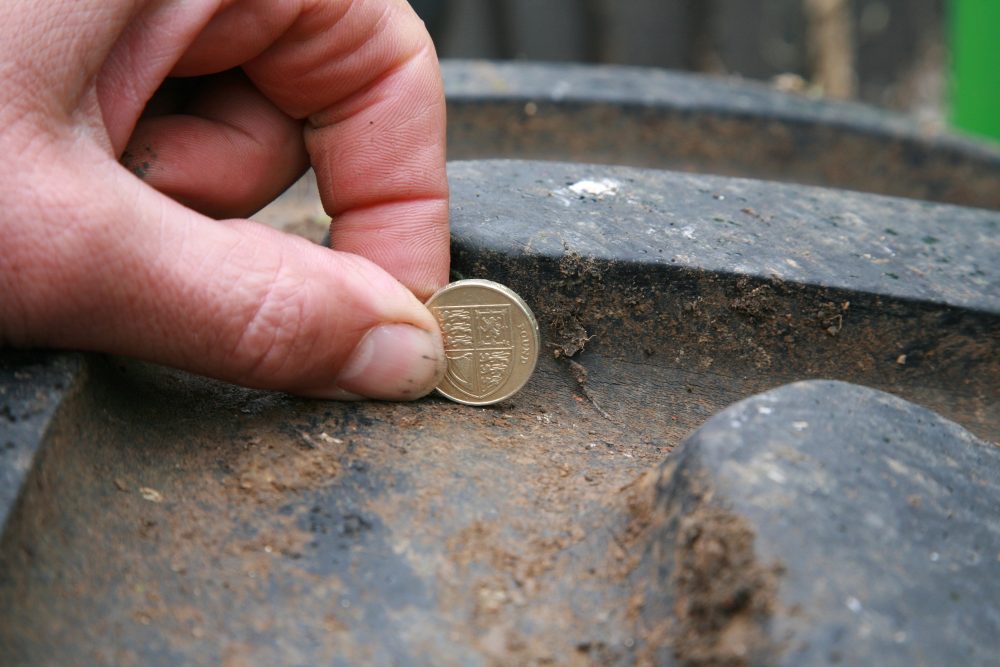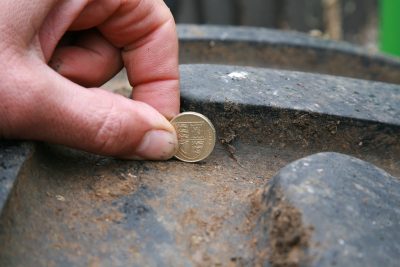Michelin Customer Engineering Support Manager Gordon Brookes is urging farmers and contractors to perform fleet audits during the quieter winter months, and guarantee a successful start to 2017.
“With harvest 2016 firmly behind us, it’s essential to look to the future and ensure machinery, tyres and wheels are well maintained, in order to hit the ground running in 2017,” explains Brookes.
Here are his ‘Top Five’ tips:
1. Check tyres for signs of damage
Tyres work hard during the busy summer months and throughout the ever-challenging harvest season. Accidental damage – no matter how small the cut, bulge or tear – will compromise the tyre’s efficacy. The year’s quieter periods are the ideal time to identify and rectify any accidental damage that could lead to issues at a later date. Check the tread area and sidewalls right down to the wheel rim, to ensure any potential faults are found – and that there is sufficient tread remaining.
Be aware too that tyre damage is more prevalent during winter months, when the climate is typically wetter. As water is a lubricant to rubber, sharp objects are able to penetrate tyre casings more easily than in the dry, making it even more important to conduct regular safety checks on tyres.
2. Prevent flat spots
If agricultural machinery is likely to remain stationary for extended periods of time, it’s best to inflate the tyres to slightly higher-than-standard operating pressures, while ensuring the manufacturer’s maximum inflation pressure is not exceeded. By doing so, tyres will be less likely to develop ‘flat spots’, and you’ll save yourself a job of fixing this come spring. Flat spots are a result of one section of the casing being deflected, which causes massive vibration on the road.
3. Consider technical applications
Think about your operations, and consider whether your current tyre policy or specification is fit-for-purpose. The right tyre changes everything – particularly in certain, very specific applications. Before settling on a tyre, consider the type of soil, how big the machine is, its width or height limitations, the weight of any towed machinery or trailers, and the optimum pressures both in the field and on the road. Running the correct fitments at the right pressures is the key to getting the best from both tyre and machinery, whilst preserving soil structure.
4. Watch those wheels
To prolong tyre life, wheels need to be kept in tip-top condition too. Kerbing or hitting a pothole can affect a machine’s wheel alignment, leading to rapid and uneven wear on the rubber, and reducing fuel efficiency and performance. If you suspect your wheel alignment may need adjusting, speak to your tyre dealer and have them carry out a wheel alignment check during the winter. It’s a quick and relatively inexpensive exercise, but is a sure-fire way to make sure your fleet is heading in the right direction in time for spring.
5. Ask an expert
If in doubt – ask an expert. Michelin’s technical team can visit your farm, offer free, no-obligation advice on the right tyre for the application, calculate optimum pressures, and help you make the most of your fitments. Alternatively, your local Michelin Exelagri-accredited dealer is no-doubt brimming with industry knowledge. Each dealer forming the network has to pass a stringent, 48-point quality audit and pledge to offer an extensive range of Michelin products and services, 24/7 breakdown support, quality tyre repairs, wheel alignment checks, and must have the ability to fit tyres both on-site and in the field. They must also offer a tyre delivery service, backed up by the provision of expert technical advice and aftersales support.
“Preparing in advance is the key to achieving the highest yields in farming, and having a concise, well-thought-out plan for tyre checks and maintenance will help keep your fleet running efficiently, and allow you to handle any major maintenance work in quieter periods, minimising disruption,” Brookes concludes.
For more information about the range of Michelin farm tyres available visit http://agricultural.michelin.co.uk or tweet @MichelinAgriUK.
Ends
Michelin , the leading tyre company, is dedicated to sustainably improving the mobility of goods and people by manufacturing, distributing and marketing tyres for every type of vehicle. It also offers innovative business support services, digital mobility services and publishes travel guides, hotel and restaurant guides, maps and road atlases. Headquartered in Clermont-Ferrand, France, Michelin is present in 170 countries, has 112,300 employees and operates 68 production plants in 17 countries. The Group also has a Technology Centre, responsible for research and development, with operations in Europe, North America and Asia. (www.michelin.com)
For further press information please contact:
David Johnson, Michelin Press Office
Tel: + 44 (0) 1782 402341 Email: d.johnson@michelin.com
Andy Hemphill or Beth Laws, Garnett Keeler PR, Inver House, 37-39 Pound Street,
Carshalton, Surrey, SM5 3PG
Tel: +44 (0)20 8647 4467 Fax: +44 (0)20 8544 4711 E-mail: andy.hemphill@garnettkeeler.com or beth.laws@garnettkeeler.com
MICHA/164/16






